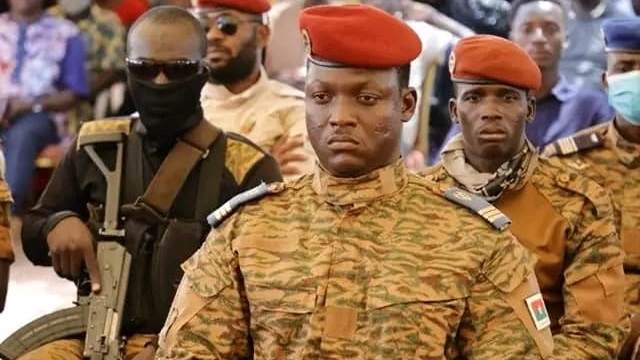The Making of a Myth: How Soldiers Become Saints in the Eyes of a Frustrated Nation
In the wake of political disappointment, insecurity, and foreign interference, a particular pattern tends to emerge across many African nations: the rise of the soldier-hero.
Captain Ibrahim Traoré of Burkina Faso is one of the latest examples of this phenomenon. Young, defiant, and adorned in military fatigues, he quickly became a symbol of resistance—celebrated not just in his country, but across a swath of pan-African digital spaces.But beneath the symbolism lies a more complex reality. One that challenges the image being sold to the public.
So how does
someone like Traoré go from little-known army captain to revolutionary myth?
Let’s
unpack the anatomy of myth-making in modern African politics.
1. Symbolism Over Substance
The moment
a young soldier dons a beret and speaks of sovereignty, justice, and
anti-imperialism, something powerful is triggered in the imagination of the
people. The image evokes echoes of iconic leaders like Thomas Sankara, Patrice
Lumumba, or Amílcar Cabral.
In Traoré’s
case, comparisons to Sankara came swiftly. Both are young, military men. Both
used strong rhetoric about African independence. Both were seen as challengers
of the old order.
But here’s the difference: symbolism is not the same as substance. While Sankara introduced bold structural reforms in health, education, and women’s rights within a short time,
Traoré’s rule so far has produced more headlines than results. The myth, however, continues to grow—because symbols are often more powerful than facts.
2. Social Media: The New Propaganda Tool
In today's
world, social media platforms are the new battlegrounds of political
legitimacy.
Accounts
from across Africa and the diaspora have transformed Traoré into a meme-worthy
icon of resistance. Videos of him in uniform, walking among civilians or giving
fiery speeches, are shared with dramatic music and hashtags like
#PanAfricanism, #DownWithImperialism, or #NewAfricaRising.
But social
media rarely shows the full picture. Behind the hero narrative are:
- Increased jihadist attacks in rural regions
- Massive internal displacement of civilians
- Crackdowns on dissent and press freedom
- Opaque governance and unfulfilled promises
Still,
online, he remains the man of the people—the “African Che Guevara”—not because
of what he’s done, but because of what he represents in a time of despair.
3. The Power of Frustration
It’s no
coincidence that military leaders often rise to mythic status in moments of
widespread frustration. When democracy fails to deliver, when corruption feels
systemic, and when foreign powers meddle freely, people become desperate for a
savior.
Traoré’s myth is less about him and more about what people hope he could be. He becomes a screen onto which national frustrations and aspirations are projected.
But desperation can cloud judgment. It can cause us to overlook red flags, dismiss criticism as betrayal, and celebrate control as stability. In this space, accountability dies—and myth becomes a shield for mediocrity.
4. The Dangerous Cycle
The danger
of mythologizing soldiers is that it often ends where it began: in
disappointment.
History
shows us that once these heroes settle into power, the promises of reform are
often replaced with consolidation of power, shrinking civic space, and
repression. By then, those who question them are labeled enemies, traitors, or
agents of foreign influence.
We’ve seen
it before. We may be watching it happen again.
Myth Is Not Governance
Africa
doesn’t need more myths. It needs results.
It needs
security, education, health systems, jobs, and justice. None of these come from
charismatic speeches or perfectly timed photo ops—they come from transparent
institutions, citizen participation, and leadership that embraces scrutiny, not
silences it.










No comments: